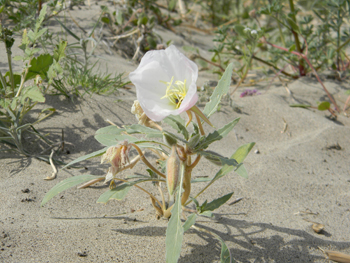
Science
 EPIGENETICS
EPIGENETICS

A new science peels away another layer of the genetic onion.
by John McManamy

A new science peels away another layer of the genetic onion.
by John McManamy
THE FOLLOWING is from my book, IN SEARCH OF OUR IDENTITY:
Don’t necessarily bet on genetics. Enter the science of “epigenetics.”
Epigenetics, among other things, accounts for why identical twins are not exactly identical, especially when one twin starts manifesting symptoms of bipolar or schizophrenia while the other remains perfectly healthy. Statistically, if one identical twin shows bipolar symptoms there is roughly a 50-50 chance of the other twin becoming symptomatic, as well. This is a much higher rate than amongst fraternal twins and other family members, not to mention the general public. Simple statistics, then, constitute our best evidence that bipolar is transmitted genetically, even if we cannot identify the genes.
But those same studies also make a compelling case for environmental factors. Why only a 50-50 probability? Why not 70 or 80 or 90 percent? The only explanation is environment. Separate those twins for even a short time—say put them in different classrooms—and they will be growing up with different life experiences. Duplicate seeds, in effect, different soil.
We’re right back to first principles, now, where we’re talking about genetic vulnerabilities rather than genetic inevitabilities. It’s always a two-step between genes and environment, but now we’re introducing a facilitating factor.
Epigenetics literally translates to “above the genes.” The field is so new that back in late 2003, when I entered both “epigenetics” and “bipolar” into a PubMed search, I came up with but one scientist conducting actual research. A current search tells a different story, and today epigenetics is emerging as a new frontier in science, one that may eventually provide the answers into the complex dynamics between genes and environment, not to mention yield credible insights into our behavior.
The thinking is that epigenetics acts as a rapid responder to environmental change. This would involve switching genes on or off by means other than those initiated by our regulatory strands of DNA. Thus—and this is well-established—a molecular methyl group may insert itself into a gene portion of DNA and either activate it or silence it. These are fairly routine occurrences, and may account in large part for our reactions to stress, and why, for instance, people exposed to traumatic events may almost overnight develop a sensitized limbic system all too quick to set off fight or flight.
SIGN UP FOR MY FREE EMAIL NEWSLETTER
Okay, this is where it gets interesting. Until recently it was believed that what happens inside your life experience stays inside your life experience. That your kids, for instance, wouldn’t inherit your trauma. Instead, your DNA could be counted on to build in your offspring a reasonable replica of the same standard-issue amygdala or hippocampus you and your partner were born with, scrubbed free of both your pain and suffering.
Epigenetics says not so fast. Our best support for this comes from the “Dutch Hunger Winter” of 1944-45, when the occupying Nazis cut off food supplies to the urban civilian population in the Netherlands. This resulted in some 22,000 deaths. Thanks to meticulous records kept by the Dutch, we know that those exposed to the starvation conditions as early term fetuses turned out as adults to have higher rates of obesity and greater susceptibility to a range of illnesses (including schizophrenia).
This of itself shouldn’t be too surprising. We already know that the body will store fat in starvation conditions, and that failure to reset to normal during subsequent times of plenty will likely result in obesity. It also should come as no surprise that those exposed to starvation in utero will contend with these same challenges. The big surprise, though, is that their kids—the offspring of those who survived the hunger winter inside the womb—in turn are experiencing higher rates of obesity and bad health. How can this be?
Our prime suspect in this case is insulin-like growth factor 2 (IGF2), a gene that looms large in growth during gestation. Recent research reveals that those who had experienced the famine during that crucial early stage in their fetal development showed less DNA methylation in this gene compared to their siblings.
Let this sink in for a second: What the Dutch Winter Hunger is telling us is that an extremely stressful event your grandmother may have experienced in the womb may have a profound impact on your physical or mental state in the here and now. Or, to freely extrapolate, a trauma that may have affected your great-granddad as a boy may still be echoing in your brain a century later.
Boggles the mind, doesn’t it?
Dec 6, 2016
NEW!
Follow me on the road. Check out my New Heart, New Start blog.












